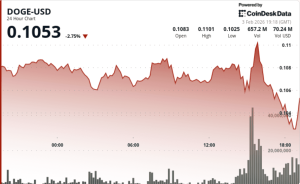UAE’s 2025 Crypto Tax Rules: Comprehensive Guide to Reporting, Compliance, and Strategic Savings

The United Arab Emirates is set to introduce a new regulatory framework for cryptocurrency taxation in 2025, signaling a major shift in how digital assets are treated in one of the world’s fastest-growing crypto hubs. The rules outline specific obligations for reporting, compliance, and taxation of both individual and corporate crypto holdings. For investors and businesses alike, understanding these requirements is essential to avoid penalties and optimize tax efficiency. This guide provides a detailed overview of the new rules, practical compliance strategies, and tips for legally minimizing tax liability while remaining fully aligned with UAE regulations.
Key Reporting Requirements
Under the 2025 rules, all cryptocurrency transactions exceeding predefined thresholds must be reported to the Federal Tax Authority. This includes purchases, sales, exchanges, and transfers across wallets and exchanges. Both individuals and businesses are obligated to maintain detailed records of transactions, including dates, amounts in Rs., counterparties, and the nature of each operation. Accurate reporting is crucial, as the UAE authorities will use this data to calculate taxable gains and ensure transparency across the crypto ecosystem.
Compliance Obligations for Investors and Businesses
Compliance extends beyond reporting, encompassing recordkeeping, timely filing, and adherence to valuation rules. Crypto holdings must be assessed using fair market value at the time of each transaction, denominated in Rs. For businesses, the rules also require integration of crypto transactions into financial statements, proper categorization of capital gains versus operational income, and submission of annual tax returns reflecting crypto activity. Failure to comply may trigger fines, audits, or additional scrutiny from regulators.
Smart Tax Savings Strategies
While compliance is mandatory, investors can still legally optimize tax exposure. Strategies include tracking cost basis meticulously, leveraging losses to offset gains, and considering the timing of asset disposal to minimize taxable events. Businesses can structure crypto operations strategically, such as separating investment holdings from operational wallets and using recognized accounting methods for valuation. Consulting with tax professionals familiar with UAE crypto regulations is recommended to maximize efficiency while ensuring full adherence to the law.
Potential Implications for the Crypto Market
The new rules are expected to professionalize the UAE’s crypto market further, encouraging institutional participation while deterring unregulated activity. Enhanced transparency may increase investor confidence, reduce market manipulation, and support long-term growth. However, it could also introduce additional administrative burdens for smaller investors and startups, requiring careful planning to maintain compliance without disrupting operations.
Outlook
The UAE’s 2025 crypto tax framework marks a significant evolution in digital asset regulation, balancing oversight with opportunities for growth and efficiency. For investors and businesses, early understanding and proactive implementation of reporting and compliance measures will be critical to navigate the new environment successfully. Those who adopt strategic approaches to recordkeeping and tax planning can benefit from the clarity and legitimacy these rules bring, ensuring sustainable participation in one of the world’s most dynamic crypto markets.




